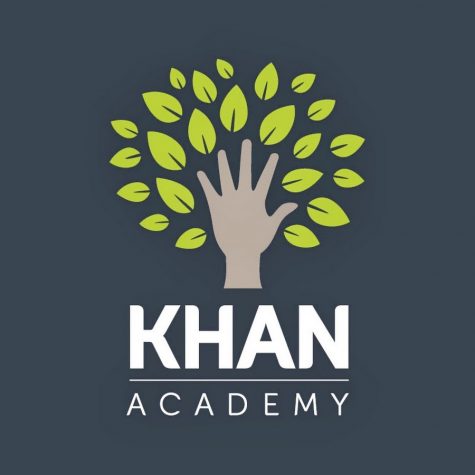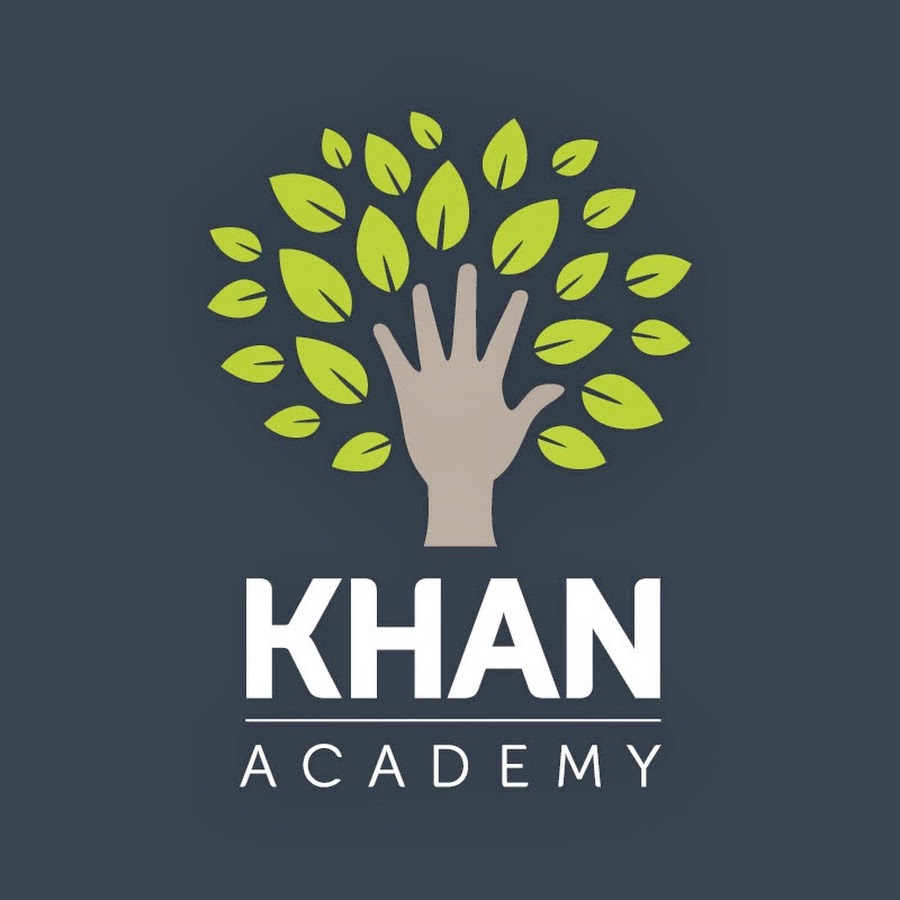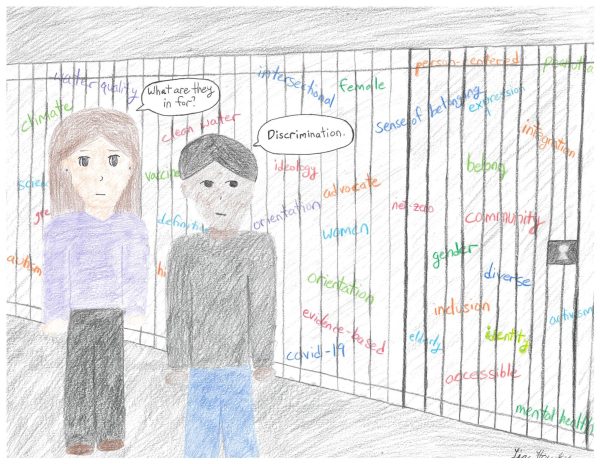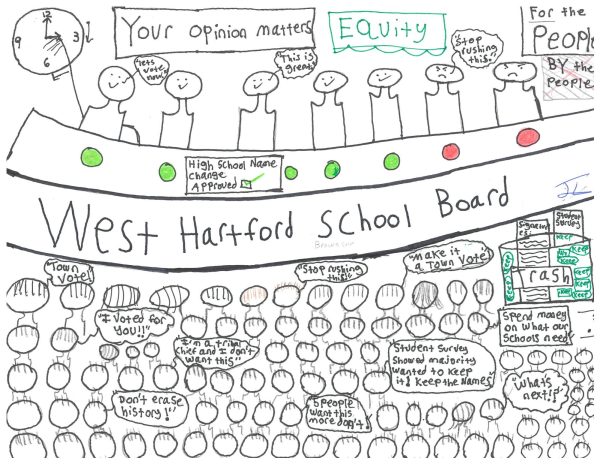The Future of Education
In our new distance learning reality, many students have complained about a seemingly overwhelming workload. In a Zoom meeting with the junior class, administrators and teachers proposed better time-management. Meanwhile, in the comments section, students complained that they shouldn’t have to spend every minute working. The disconnect boils down to this: Students don’t want to spend as much time on schoolwork as teachers want us to.
Shocker. This has always been the grand struggle of education. In normal times, the school compels us to work through the established social norms of the school environment and a system of rewards and punishments, including grades and disciplinary measures. While the education system retreated in the early days of the quarantine – with optional assignments and loose grading – students seized on the opportunity to win some territory.
Now, as the school tries to reinstate the old status quo, there will inevitably be conflict – how many classmates do you know who still skip office hours or attend without turning on their camera? Once the rules have changed, it is not so easy to change them back.
To be clear, I admire the work that our teachers have done to help bridge the gap between regular school and distance learning. But many of the unprecedented complications they face – assigning work digitally, creating engaging online lessons, boosting attendance – are variations on the age old problem that has plagued teachers forever: students would rather do other things with their time than schoolwork.
Usually the school provides all sorts of incentives for students to learn. But once these incentives are taken away or thrown into doubt, the deeper philosophical issue that they obscured surfaces: schools do not teach students to enjoy learning.
Traditionally, this has only been a part of the school’s task. Often, transferring information to students took precedence. But all those pop quizzes, pointless assignments, and soulless rubrics only served to reinforce the idea that education is a task, not a privilege.
This strategy may have been justified when schools were essential distributors of knowledge; today, that is no longer the case. There are a plethora of online resources that can accomplish the same goal with less time and less money.
Consider Khan Academy. The free online learning site offers thousands of videos, articles, and practice assignments neatly packaged into sequential courses ranging from preschool and kindergarten math to AP Art History. Khan Academy differs from other online fountains of information – such as Wikipedia or YouTube – in that it is reviewed and structured to provide trustworthy and relevant information in an easily accessible format.
My AP US Government and Politics teacher assigned us Khan Academy assignments throughout the past few months. In five weeks, we mastered 45% of the typically twenty week-long course, and each week we spent only 2-4 hours on the site, roughly on par with the amount of time we would have spent in class. When you consider a typical homework load as well, Khan Academy clearly reigns supreme in terms of efficiency.
The benefits of individualized education such as Khan Academy are well documented. Students proceed at their own pace, allowing them to advance or review as necessary. Students do not develop as many gaps in their knowledge. Whereas in a typical school setting, they might accept an 85% on a test and move on, on Khan Academy you must redo assessments in order to receive full mastery points from the website. There is no 15% of missing knowledge, which is especially important in cumulative subjects like math.
The less heralded benefit of Khan Academy is its incredible scalability. Once a video is uploaded, the only costs are site maintenance, a pittance compared to the vast sums of money spent on public education in the United States – of the 34 nations in the Organization for Economic Cooperation and Development (OECD), the US ranks fourth in terms of public spending on primary to post-secondary non-tertiary education, at $12,424.3 per student.
One video can be watched infinite times by infinite people without diminishing its quality. Overcrowded classrooms are a non-issue. Nor will the quality of education change based on zip code, as is too often the case with public schools.
Of course, not everyone can access Khan Academy. Internet access in the US is growing and appears poised to continue that growth. According to the Pew Research Center, about 90% of adults use the internet and over 77% of adults between the ages of 18 and 64 have home broadband. But all of the benefits of Khan Academy beg the question: is providing students with internet access a better investment than spending more money on public schools?
That is not to say that public schools do not have a role in our society. Rather, this pandemic is an opportunity to question what that role should be.
If our goal as a community or society is to impart as much knowledge onto students and prepare them to succeed on as many AP tests as possible, then going to school is largely a waste of time and money. If we accept that a true education expands beyond plain facts, then school will play an important role in fostering critical thinking, promoting the exchange of ideas, supporting the arts and physical activity, providing an environment for social interactions, and everything else that doesn’t fit onto a rubric.
Learning the basics of chemistry from online videos may work well, but participating in lab experiments requires the supervision of a teacher. The blessings of physical school, particularly in the age of isolation, are not to be understated. Introducing more online resources will allow teachers to focus on the unique advantages of a personal connection, while students learn content more efficiently.
Crucially, for this to happen, the school system must teach students to enjoy learning. When the coronavirus has passed, there will likely be a return to the old system of incentives. But if students also come to appreciate learning for learning’s sake, they will be better equipped to take advantage of online resources, and may even be compelled to look beyond the curriculum. You can force a man to fish, but if you teach him to love fishing, he’ll never stop.
Accomplishing this in the midst of a pandemic and economic crisis is a monumental task no doubt. But these turbulent times are also the perfect environment in which to introduce more change. If we return to school only part time next fall, as some students and teachers have speculated, then this format would serve a Khan Academy experiment very well. One can imagine distance learning days filled with educational videos followed by class discussions about applying course concepts, or debating different viewpoints.
Our education system’s primary goal cannot be merely informing our students. If this remains the case, it will soon be rendered obsolete. When it comes to content, Khan is king.







